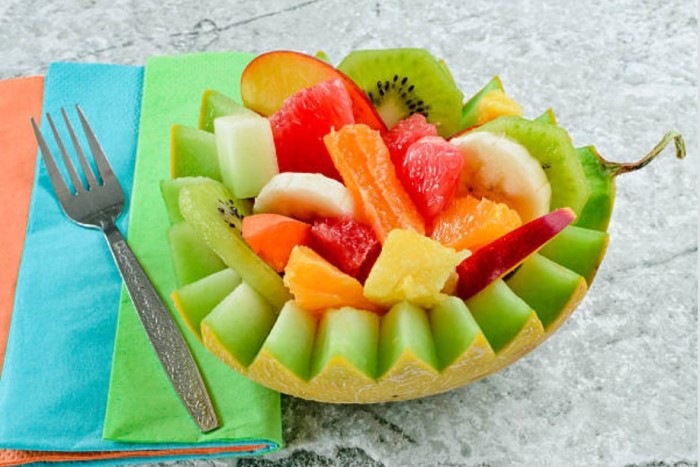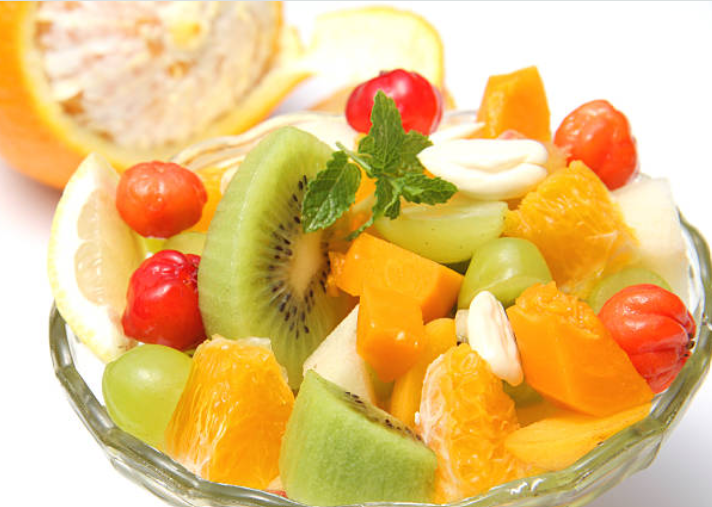
Foods with High Vitamin C
Discover a comprehensive list of foods with high vitamin C that can help you boost your immune system and improve your overall health. Learn about the benefits, sources, and creative ways to incorporate these vitamin C-rich foods into your daily diet.
Welcome to our in-depth guide on foods with high vitamin C! In this article, we will explore the numerous benefits of vitamin C, its role in supporting the immune system, and a diverse range of foods that can provide an abundance of this essential nutrient. Vitamin C is a powerful antioxidant that plays a crucial role in maintaining good health and vitality. As an expert on nutrition and wellness, I am excited to share valuable insights and first-hand experiences to help you harness the full potential of vitamin C-rich foods.
Foods with High Vitamin C: A Vital Nutrient for Optimal Health
Vitamin C, also known as ascorbic acid, is a water-soluble vitamin that cannot be produced by the human body. Therefore, it is essential to obtain this nutrient from dietary sources to maintain proper bodily functions. Vitamin C plays a multifaceted role in supporting overall health, with some of its key benefits being:
- Enhancing Immune Function: Vitamin C is renowned for its immune-boosting properties, helping the body fend off infections and illnesses.
- Collagen Production: It aids in the synthesis of collagen, a crucial protein that promotes healthy skin, bones, and connective tissues.
- Powerful Antioxidant: As an antioxidant, vitamin C neutralizes free radicals and protects the body from oxidative stress.
- Iron Absorption: It enhances the absorption of non-heme iron from plant-based foods, making it valuable for vegetarians and vegans.
- Cardiovascular Health: Vitamin C supports heart health by reducing blood pressure and improving cholesterol levels.
- Brain Health: Studies suggest that vitamin C may play a role in reducing cognitive decline and supporting brain function.

25 Foods with High Vitamin C: Incorporating Vitamin C-Rich Foods into Your Diet
Now that we understand the importance of vitamin C, let’s explore an array of delectable foods that are abundant in this essential nutrient:
| Food | Benefits | Recommended Intake |
|---|---|---|
| Citrus Fruits | Immune support, collagen production | 1-2 servings daily |
| Strawberries | Antioxidants, skin health | 1 cup daily |
| Bell Peppers | Antioxidants, eye health | 1-2 peppers per week |
| Kiwi | Digestive health, immune support | 1-2 kiwis daily |
| Guava | Immune boost, skin health | 1 guava daily |
| Broccoli | Anti-inflammatory, bone health | 2-3 servings per week |
| Brussels Sprouts | Heart health, fiber | 1-2 servings per week |
| Papaya | Digestive enzyme, skin health | 1-2 servings per week |
| Pineapple | Anti-inflammatory, digestion | 1 cup fresh pineapple daily |
| Kale | Nutrient-dense, detoxification | 2-3 servings per week |
| Mango | Vision health, alkalizing | 1-2 mangoes per week |
| Tomatoes | Antioxidants, heart health | 1-2 tomatoes daily |
| Cauliflower | Antioxidants, anti-inflammatory | 2-3 servings per week |
| Mangoes | Vision health, alkalizing | 1-2 mangoes per week |
| Tomatoes | Antioxidants, heart health | 1-2 tomatoes daily |
| Paprika | Immune support, flavor | As needed for seasoning |
| Acerola Cherries | Highest vitamin C content, immune support | 1-2 servings per week |
| Blackcurrants | Antioxidants, brain health | 1 cup daily |
| Thyme | Antimicrobial, respiratory health | As needed for seasoning |
| Peas | Fiber, heart health | 1 cup daily |
| Spinach | Iron absorption, bone health | 2-3 servings per week |
| Lemon Balm | Relaxation, digestive aid | As needed for seasoning |
| Passionfruit | Antioxidants, digestive health | 2-3 servings per week |
| Mustard Spinach | Vitamin C, bone health | 1-2 servings per week |
| Cabbage | Antioxidants, gut health | 2-3 servings per week |
1. Citrus Fruits: Oranges, Lemons, and Grapefruits
Citrus fruits are the most well-known vitamin C sources, bursting with zesty flavors and immune-boosting goodness. Incorporate freshly squeezed orange juice into your morning routine or add lemon wedges to your water for a refreshing twist.
2. Strawberries: Sweet and Nutrient-Packed
These vibrant berries not only tantalize your taste buds but also provide a healthy dose of vitamin C. Enjoy them as a standalone snack, blend them into smoothies, or use them as a topping for yogurt.
3. Bell Peppers: A Colorful Capsaicin Kick
Bell peppers come in a variety of colors, including red, yellow, and green, each offering a generous amount of vitamin C. Slice them up for salads, stir-fries, or stuff them for a delightful and nutritious meal.
4. Kiwi: Small Fruit, Big Benefits
Kiwi is a tropical fruit that packs a powerful vitamin C punch. Peel and slice the fruit for a tangy snack or use it to add a burst of flavor to fruit salads.
5. Guava: Nature’s Vitamin C Powerhouse
Guava is an underrated fruit that boasts four times the vitamin C content of oranges. Blend it into smoothies or enjoy it as a standalone treat to experience its tropical goodness.
6. Broccoli: Versatile and Nutrient-Dense
This cruciferous vegetable not only provides vitamin C but also offers an array of other essential nutrients. Steam or roast broccoli for a delicious side dish or add it to soups and stir-fries.
7. Brussels Sprouts: Miniature Cabbage Delights
Brussels sprouts are an excellent source of vitamin C, fiber, and antioxidants. Roast them with olive oil and seasonings for a delightful accompaniment to any meal.
8. Papaya: A Tropical Vitamin C Booster
Papaya is not only rich in vitamin C but also contains enzymes that aid digestion. Enjoy it as a fruit salad addition or blend it into a refreshing smoothie.
9. Pineapple: Sweet and Tangy Vitamin C Treat
Pineapple is a tropical delight that adds a burst of flavor and vitamin C to your diet. Use it in fruit salads, salsas, or even grill it for a unique dessert.
10. Kale: Nutrient-Packed Superfood
Kale is a nutrient powerhouse, boasting not only vitamin C but also vitamins A and K. Add it to salads, smoothies, or sauté it as a delicious side dish.
11. Mango: Exotic and Nutritious
Mangoes are not only delicious but also rich in vitamin C, making them a perfect summer treat. Enjoy them as a standalone fruit or blend them into a luscious smoothie.
12. Tomatoes: Juicy and Vitamin C-Rich
Tomatoes are versatile and can be used in various dishes, providing vitamin C and lycopene, a powerful antioxidant. Include them in salads, sauces, or enjoy them as a snack.
13. Cauliflower: Mild and Nutritious
Cauliflower is an excellent source of vitamin C and can be used as a low-carb substitute for rice or mashed potatoes.
14. Mangoes: Exotic and Nutritious
Mangoes are not only delicious but also rich in vitamin C, making them a perfect summer treat. Enjoy them as a standalone fruit or blend them into a luscious smoothie.
15. Tomatoes: Juicy and Vitamin C-Rich
Tomatoes are versatile and can be used in various dishes, providing vitamin C and lycopene, a powerful antioxidant. Include them in salads, sauces, or enjoy them as a snack.
16. Paprika: Spicy and Nutrient-Packed
Paprika is made from dried bell peppers and is a wonderful way to add both flavor and vitamin C to your dishes.
17. Acerola Cherries: A Potent Source of Vitamin C
Acerola cherries are one of the richest natural sources of vitamin C, making them a great addition to your diet.
18. Blackcurrants: Tiny Berries, Immense Benefits
Blackcurrants are packed with vitamin C and other antioxidants, offering various health benefits.
19. Thyme: An Aromatic Source of Vitamin C
Thyme not only adds flavor to your meals but also provides a healthy dose of vitamin C.
20. Peas: Small and Mighty
Peas may be tiny, but they pack a good amount of vitamin C, along with fiber and other nutrients.
21. Spinach: A Nutrient-Rich Green
Spinach is a nutrient-rich leafy green that offers an array of vitamins and minerals, including vitamin C.
22. Lemon Balm: Citrusy and Refreshing
Lemon balm is an herb that not only adds a citrusy note to your recipes but also provides vitamin C.
23. Passionfruit: A Tropical Delight
Passionfruit is a tropical fruit rich in vitamin C, fiber, and various beneficial plant compounds.
24. Mustard Spinach: A Unique Leafy Green
Mustard spinach, also known as tendergreen mustard, is a lesser-known source of vitamin C.
25. Cabbage: Crunchy and Nutritious
Cabbage is not only a great source of vitamin C but also provides fiber and other essential nutrients.
By incorporating these foods into your diet, you can significantly boost your vitamin C intake and support your immune system, overall health, and vitality.
High Vitamin C Foods (700 Calorie Meals)
The Recommended Daily Intake of Vitamin C
Vitamin C, also known as ascorbic acid, is a water-soluble vitamin that the body cannot produce on its own. Therefore, it is crucial to obtain an adequate amount of this essential nutrient from dietary sources to maintain optimal health. The recommended daily intake of vitamin C varies depending on age, gender, and life stage. Here are the recommended daily allowances (RDAs) of vitamin C according to the National Institutes of Health (NIH):
- Infants (0-6 months): 40 mg/day
- Infants (7-12 months): 50 mg/day
- Children (1-3 years): 15 mg/day
- Children (4-8 years): 25 mg/day
- Children (9-13 years): 45 mg/day
- Teen Boys (14-18 years): 75 mg/day
- Teen Girls (14-18 years): 65 mg/day
- Adult Men (19 years and older): 90 mg/day
- Adult Women (19 years and older): 75 mg/day
- Pregnant Women (14-50 years): 85 mg/day
- Breastfeeding Women (14-50 years): 120 mg/day
| Age | Male | Female | Smokers |
|---|---|---|---|
| Infants 0-6 months | 40 mg | 40 mg | 40 mg |
| Infants 7-12 months | 50 mg | 50 mg | 50 mg |
| Children 1-3 years | 15 mg | 15 mg | 15 mg |
| Children 4-8 years | 25 mg | 25 mg | 25 mg |
| Children 9-13 years | 45 mg | 45 mg | 45 mg |
| Teens 14-18 years | 75 mg | 65 mg | 100 mg |
| Adults 19+ years | 90 mg | 75 mg | 125 mg |
- The Recommended Daily Allowance (RDA) is the amount of vitamin C that most adults need to get each day to maintain good health.
- Smokers need an additional 35 mg of vitamin C per day because smoking increases the body’s need for the vitamin.
- The Tolerable Upper Intake Level (UL) is the maximum amount of vitamin C that is safe for most adults to consume each day.
It is important to note that these are just general recommendations. Your individual needs may vary depending on your age, sex, health status, and other factors. If you are concerned about your vitamin C intake, talk to your doctor.
Potential Risks of Vitamin C Deficiency
Vitamin C deficiency, also known as scurvy, can lead to a range of health issues due to the vital role vitamin C plays in various bodily functions. Some potential risks associated with vitamin C deficiency include:
- Weakened Immune System: Vitamin C is essential for the proper functioning of the immune system. A deficiency can lead to a weakened immune response, making the body more susceptible to infections and illnesses.
- Fatigue and Weakness: Inadequate vitamin C intake can result in fatigue and weakness due to its role in energy production and iron absorption.
- Joint and Muscle Pain: Vitamin C deficiency may lead to joint and muscle pain due to its role in collagen synthesis, which is essential for maintaining healthy connective tissues.
- Delayed Wound Healing: Collagen is crucial for wound healing, and a lack of vitamin C can lead to delayed recovery from injuries or wounds.
- Dry and Damaged Skin: Vitamin C is an antioxidant that helps protect the skin from oxidative damage. A deficiency can lead to dry, rough, and damaged skin.
- Bleeding Gums and Dental Issues: Scurvy can cause bleeding gums, loose teeth, and other dental problems as a result of weakened connective tissues in the gums.
- Anemia: Vitamin C enhances the absorption of non-heme iron from plant-based foods. A deficiency may lead to iron deficiency anemia, especially in individuals with low dietary iron intake.
- Mood Changes and Depression: Some studies suggest a potential link between vitamin C deficiency and mood disorders, as vitamin C plays a role in the production of neurotransmitters.
It’s important to recognize the symptoms of vitamin C deficiency and address them promptly through dietary changes and, if necessary, supplementation. Consuming a diet rich in vitamin C-containing foods can help prevent deficiency and promote overall well-being.
Sources of Vitamin C
To meet the recommended daily intake of vitamin C, include a variety of vitamin C-rich foods in your diet. Some excellent sources of this essential nutrient include:
- Citrus fruits such as oranges, lemons, and grapefruits
- Berries like strawberries, blueberries, and raspberries
- Kiwi
- Bell peppers, especially red and yellow varieties
- Tomatoes and tomato products
- Broccoli and cauliflower
- Spinach and other leafy greens
- Pineapple
- Mango
- Guava
- Papaya
- Brussels sprouts
- Winter squash
- Potatoes
By incorporating these vitamin C-rich foods into your meals and snacks, you can ensure you’re getting the necessary daily intake to support your immune system, overall health, and well-being.
Cooking tips to preserve Vitamin C in foods
Preserving the vitamin C content in foods during cooking is essential to ensure that you reap the maximum nutritional benefits from these vitamin C-rich ingredients. Vitamin C is sensitive to heat, light, and oxygen, which can lead to its degradation and loss. Here are some cooking tips to help preserve the vitamin C in your foods:
- Use Steaming: Steaming is one of the best cooking methods for preserving the vitamin C content in vegetables. It involves cooking the food with steam, which helps retain water-soluble nutrients like vitamin C. Steaming vegetables until they are just tender is ideal to minimize nutrient loss.
- Quick Stir-Frying: Stir-frying vegetables quickly over high heat can help retain their vitamin C content. The fast cooking process reduces the exposure time to heat, minimizing nutrient degradation.
- Blanching: Blanching involves briefly immersing vegetables in boiling water and then quickly cooling them in ice water. This technique can help lock in the vitamin C content before further cooking.
- Microwaving: Microwaving is a convenient way to cook vegetables while preserving their vitamin C. The short cooking time and minimal use of water can help retain nutrients.
- Cook with the Skin On: For fruits and vegetables with edible skins, such as potatoes and apples, consider cooking them with the skin on. The skin acts as a protective barrier, helping to preserve the nutrient content during cooking.
- Avoid Prolonged Cooking: Prolonged exposure to high heat can lead to significant vitamin C loss. Try to avoid overcooking vegetables to preserve their nutritional value.
- Cook in Small Batches: Cooking vegetables in small batches allows for faster cooking times, reducing nutrient loss.
- Use Minimal Water: When boiling vegetables, use the minimum amount of water necessary. Excess water can leach out vitamins, including vitamin C.
- Store and Handle Foods Properly: Store fruits and vegetables properly to maintain their freshness and vitamin C content. Handle them with care to minimize bruising, which can accelerate nutrient loss.
- Serve Raw or Lightly Cooked: For some vegetables and fruits, consuming them raw or lightly cooked can be a great way to preserve their vitamin C content. Consider adding them to salads or eating them as snacks.
- Avoid High Temperatures for Sauces and Juices: When making sauces or juices with vitamin C-rich ingredients, avoid using high temperatures, as this can lead to nutrient degradation. Use gentle heat or consider adding raw vitamin C-rich fruits or vegetables to the dish after cooking.
By adopting these cooking tips, you can ensure that you retain the valuable vitamin C content in your foods and enjoy the full nutritional benefits of these vitamin-rich ingredients.
Vitamin C supplements: Pros and Cons
Vitamin C supplements have become increasingly popular as a convenient way to ensure adequate intake of this essential nutrient. While vitamin C supplements can offer certain benefits, they also come with potential drawbacks. Let’s explore the pros and cons of vitamin C supplements:
Pros of Vitamin C Supplements:
- Convenience: Vitamin C supplements provide a convenient way to obtain a concentrated dose of the vitamin without relying solely on dietary sources.
- Immune Support: Vitamin C is renowned for its immune-boosting properties. Supplements can help strengthen the immune system, especially during times of illness or when dietary intake is insufficient.
- Antioxidant Benefits: Vitamin C is a potent antioxidant that helps neutralize free radicals and protect cells from oxidative damage. Supplements may enhance antioxidant defense.
- Collagen Production: Vitamin C plays a crucial role in collagen synthesis, promoting healthy skin, bones, and connective tissues. Supplements can support these functions.
- Iron Absorption: Ascorbic acid enhances the absorption of non-heme iron from plant-based foods. Combining vitamin C supplements with iron-rich meals can aid those at risk of iron deficiency.
- Support During Stress: Vitamin C levels in the body can decrease during periods of stress. Supplements can help maintain adequate levels during such times.
Cons of Vitamin C Supplements:
- Digestive Issues: Excessive vitamin C intake from supplements can cause gastrointestinal discomfort, including diarrhea, bloating, and cramps.
- Nutrient Imbalance: Taking high-dose vitamin C supplements without proper consideration of other nutrients can lead to imbalances and potential adverse effects.
- Bioavailability: Some vitamin C supplements may have lower bioavailability compared to vitamin C from natural food sources, meaning the body may absorb and utilize them less effectively.
- Interaction with Medications: Vitamin C supplements may interact with certain medications, affecting their efficacy or causing unwanted side effects. It’s essential to consult with a healthcare professional before combining supplements with medications.
- Cost: High-quality vitamin C supplements can be expensive, especially when compared to obtaining vitamin C from whole foods.
- Over-reliance on Supplements: Relying solely on supplements for vitamin C intake may discourage a balanced and varied diet, potentially leading to deficiencies in other essential nutrients.
Highest Vitamin C Food on the Planet and the Benefits of Vitamin C
Frequently Asked Questions (FAQs):
What are the symptoms of vitamin C deficiency?
A: Vitamin C deficiency can lead to symptoms like fatigue, weakness, frequent infections, slow wound healing, and joint pain.
Can I get enough vitamin C from supplements alone?
A: While vitamin C supplements can be beneficial, it is essential to obtain nutrients from whole foods for maximum absorption and overall health benefits.
Can vitamin C help prevent the common cold?
A: While vitamin C cannot prevent the common cold entirely, it may help reduce the severity and duration of symptoms.
Are there any risks of consuming too much vitamin C?
A: Excessive vitamin C intake from supplements may cause digestive issues such as diarrhea, but obtaining vitamin C from food sources rarely leads to adverse effects.
How can I preserve the vitamin C content in foods during cooking?
A: To preserve the vitamin C in foods, opt for cooking methods like steaming, microwaving, or quick stir-frying, as prolonged exposure to heat can lead to nutrient loss.
Is it better to consume vitamin C-rich foods raw or cooked?
A: Both raw and cooked vitamin C-rich foods offer nutritional benefits. Some nutrients may be slightly reduced during cooking, but other beneficial compounds can be enhanced.
Conclusion: Embrace the Power of Vitamin C-Rich Foods
In conclusion, foods with high vitamin C are essential for bolstering your immune system and maintaining overall health and vitality. The variety of delicious and nutrient-packed options ensures that everyone can find enjoyable ways to incorporate vitamin C into their daily diet. Remember to savor the natural goodness of fresh fruits, vegetables, and herbs to obtain the most significant health benefits. By making these vitamin C-rich foods a regular part of your meals, you can harness their immune-boosting potential and lead a healthier, more vibrant life.
Don’t wait any longer; start exploring the vibrant world of vitamin C-rich foods today!






